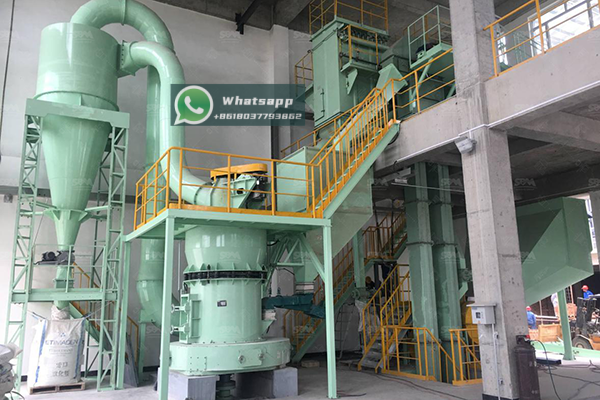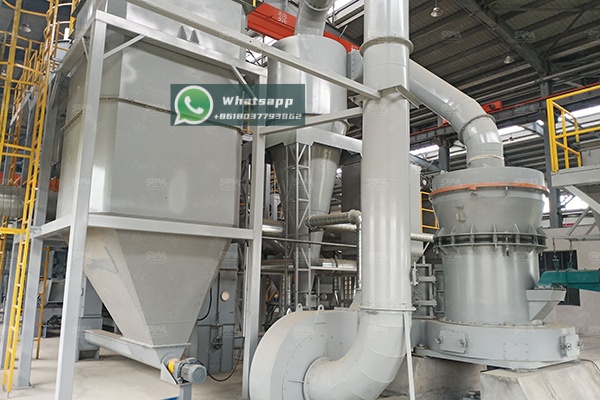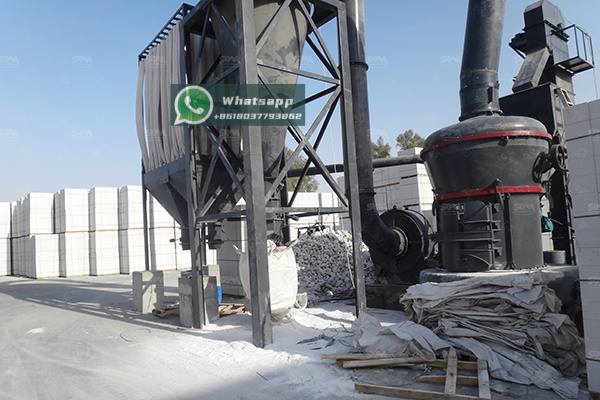In the dynamic worlds of horticulture and modern agriculture, success often hinges on the quality of the growing medium. Among the various soil amendments available, expanded perlite stands out for its remarkable properties: it is lightweight, sterile, porous, and possesses an excellent water-holding capacity while ensuring perfect aeration. These characteristics are crucial for promoting robust root development, preventing soil compaction, and managing water efficiently. However, the journey of perlite from its raw, volcanic rock form to a valuable horticultural additive is a process of precision and transformation, centered around one critical operation: grinding. This article explores the pivotal role of Raymond Mill technology in processing perlite for the horticultural and agricultural sector, highlighting the advanced solutions offered by industry leaders like Shanghai Zenith Machinery Co., Ltd.

Perlite is an amorphous volcanic glass that naturally contains relatively high water content. Its journey to becoming a horticultural staple involves a two-stage process. First, the raw perlite ore is mined and then crushed to a specific size range. The second, and most dramatic, stage is the expansion process. When the crushed perlite is rapidly heated to over 1600°F (870°C), the trapped water vaporizes, causing the particles to expand like popcorn to up to 20 times their original volume. This process creates the white, lightweight, and cellular-structured material familiar to gardeners.
The performance of expanded perlite is heavily influenced by its particle size distribution. Different applications demand different specifications. Coarse grades are ideal for succulent mixes and hydroponic systems where maximum drainage is needed, while finer grades are used in seed starting mixes to maintain moisture around delicate germinating seeds. Achieving this precise particle size distribution consistently and efficiently is where advanced grinding technology becomes indispensable.
After expansion, perlite aggregates can be fragile and irregular. The primary goal of grinding is to break down these aggregates into a controlled, consistent powder or granular product without destroying its delicate, porous structure. An inefficient or overly aggressive mill can generate excessive fines (dust), which reduces the product’s value and can pose a respiratory hazard. Conversely, an under-performing mill may fail to break down larger aggregates, leading to an inconsistent product that does not meet industry standards.
Therefore, the ideal mill for perlite must offer:
Among the various grinding technologies available, the Raymond Mill has proven to be exceptionally well-suited for processing non-metallic minerals like perlite. Its working principle, based on a vertical structure with a centralized control system, makes it a robust and reliable workhorse. The material is fed into the grinding chamber and is pulverized between the rotating grinding rollers and the stationary grinding ring. The resulting powder is then carried by the air stream to the classifier, where oversized particles are separated and returned for further grinding, while the correctly sized product is collected in a cyclone collector.
For perlite specifically, the Raymond Mill offers distinct advantages:

Selecting the right equipment partner is as crucial as selecting the right technology. Shanghai Zenith Machinery Co., Ltd. has established itself as an excellent manufacturer of ore grinding equipment in China, with significant achievements in the field of ultra-fine powder grinding. With a specialization in the research, development, and production of industrial powder grinding equipment, Zenith offers a range of mills that can be tailored for the perlite industry.
While their product portfolio is extensive, two models stand out for perlite processing: the traditional and highly efficient Raymond Mill (YGM series) and the more advanced, high-capacity MTW Trapezium Grinding Mill.
Zenith’s Raymond Mill is a benchmark for energy-saving and environmental protection in mineral grinding. It is particularly beneficial for processing soft to medium-hard materials like perlite. Its high grinding efficiency and lower energy consumption translate directly into higher economic profits for the processor.
Below are the technical parameters for several models in the YGM series, demonstrating their suitability for various production scales:
| Model | Roller Quantity (pcs) | Max.Feed Size (mm) | Discharging Size (mm) | Capacity (t/h) |
|---|---|---|---|---|
| YGM8314 | 3 | 20 | 1.6-0.045 | 1.2-4.6 |
| YGM9517 | 4 | 25 | 1.6-0.045 | 2.1-8 |
| YGM4121 | 5 | 30 | 1.6-0.045 | 5-11 |
For operations requiring higher output and even greater efficiency, Zenith’s MTW Trapezium Grinding Mill is an excellent recommendation. This mill incorporates multiple national patents and features an advanced bevel gear overall drive, an internal thin-oil lubrication system, and a curved air duct. These features make it more efficient, durable, and environmentally friendly than traditional Raymond Mills.
| Model | Max. Feed Size (mm) | Final Size (mm) | Capacity (t/h) | Main Motor (kW) |
|---|---|---|---|---|
| MTW110 | <30 | 1.6-0.045 | 3-9 | 55 |
| MTW138Z | <35 | 1.6-0.045 | 6-17 | 90 |
| MTW215G | <50 | 1.6-0.045 | 15-45 | 280 |
A commercial nursery specializing in container-grown ornamentals was facing issues with inconsistent growth and waterlogging in their standard potting mix. By switching to a custom blend incorporating a specific grade of perlite processed through a Zenith MTW175G mill, they achieved remarkable results. The consistent particle size ensured uniform aeration and moisture retention throughout the container. This led to a 20% reduction in water usage due to less frequent irrigation, a 15% increase in plant growth rate due to healthier root systems, and a significant decrease in plant loss from root rot. The reliability of the grinding mill also ensured a steady supply of quality perlite, allowing the nursery to scale its operations confidently.
The quality of processed perlite is a foundational element for success in horticulture and agriculture. Investing in the right grinding technology is not merely an equipment purchase; it is an investment in product quality, operational efficiency, and market competitiveness. The Raymond Mill, particularly the advanced models developed by specialized manufacturers like Shanghai Zenith Machinery Co., Ltd., provides a proven, efficient, and reliable solution for transforming raw, expanded perlite into a high-value, performance-enhancing soil amendment. By choosing a partner like Zenith and a robust grinding system like the YGM Raymond Mill or the MTW Trapezium Mill, processors can ensure they are well-equipped to meet the exacting demands of the modern horticultural sector.
